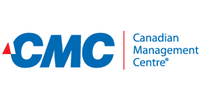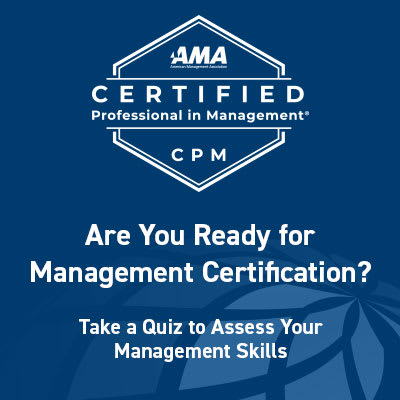Certified SAFe® Scrum Master (SSM)
-
From 995 USD
-
Online
-
Virtual Classroom
Certified Scrum Master (CSM) - incl. exam & 2nd chance - flexi pass: afternoon/evening
-
Multiple (8)
-
From 950 USD
-
Online
-
Virtual Classroom, Self-paced Online
Certified Scrum Professional - ScrumMaster (CSP-SM)
-
From 1,295 USD
-
Online
-
Virtual Classroom
Certified Scrum Professional® - Product Owner (CSP-PO)
-
From 1,295 USD
-
Online
-
Virtual Classroom
SAFe ®6 Scrum Master (SSM) - Online Classroom (exam included)
-
Multiple (3)
-
From 1,650 USD
-
Online
-
Virtual Classroom
Scrum Master Certified (SMC™) - eLearning (exam included) now: Free re-exam
-
From 650 USD
-
Online
-
Self-paced Online
Professional Scrum Master™ II (PSM-II) - Online Classroom (exam included)
-
Multiple (2)
-
From 1,950 USD
-
Online
-
Virtual Classroom
Professional Scrum Master ™ I (PSM-I) - Online Classroom (exam included)
-
Multiple (2)
-
From 1,850 USD
-
Online
-
Virtual Classroom
Certified ScrumMaster Workshop (CSM)
-
From 1,395 USD
-
Multiple (2)
-
Classroom, Webinar
Registered Scrum@Scale Practitioner
-
From 1,495 USD
-
Online
-
Virtual Classroom
Certified Scrum Product Owner ® (CSPO) - (Exam Included) flexipass: afternoon/evening
-
Multiple (15)
-
From 950 USD
-
Online
-
Virtual Classroom
Certified SAFe® Advanced Scrum Master (SASM)
-
12/2/2024
-
From 995 USD
-
Online
-
Virtual Classroom
SAFe ® Advanced Scrum Master (SASM) - Online Classroom (exam included)
-
Multiple (3)
-
From 1,650 USD
-
Online
-
Virtual Classroom
SCRUM PACKAGE: Scrum Master Certified (SMC™) & Scrum Product Owner (SPOC™) - eLearning (Exam Included)
-
From 1,150 USD
-
Online
-
Self-paced Online
Scrum Product Owner Certified (SPOC™) - eLearning (exam included) now: Free re-exam
-
From 650 USD
-
Online
-
Self-paced Online
Sprint to Project Success with Agile Scrum
-
Multiple (2)
-
Classroom, Virtual Classroom
Professional Scrum Product Owner ™ (PSPO-1) - Online Classroom (exam included)
-
Multiple (2)
-
From 1,950 USD
-
Online
-
Virtual Classroom
Scrum Master Certification - In House
-
Intermediate level
-
Worldwide
-
On-site
Scrum Master Certification and Exam - In House
-
Intermediate level
-
From 395 CAD
-
Worldwide
-
On-site
Why Scrum?
Scrum describes a standardized methodology for an Agile approach to project management and project development. It goes against traditional project management approaches in that it acknowledges the need for flexibility in processes and encourages collaboration between the individuals involved in various phases. Scrum programs aid in fostering an efficient workplace that promotes growth and are an invaluable part of the work place.
Scrum Teams and Benefits of Training
A Scrum team may consist of a sizable number of individual members, determined by the scope and complexity of the project, but is generally split into three main roles.
- The product owner, sometimes the customer and sometimes a representative, is the party responsible for ensuring the project remains aligned with the business goal.
- The development team is the group responsible for doing the work, which is measured as delivery of potentially shippable increments (PSIs).
- The Scrum Master differs from a project manager in that their ultimate goal is to protect the Scrum process and enforce its rules. This individual acts to insulate Scrum members from potential distractions.
Individuals hoping to get ahead in their career or office should prepare themselves for this teamwork by enrolling in Scrum master training. Dependence on the proficiency of each member necessitates the proper knowledge of the program. To ensure an efficient work environment, professionals should enroll in Scrum training courses.
Scrum Master Training
A Certified Scrum Master (CSM) is a 'servant-leader' to project teams using Scrum. Their purpose is to increase the likelihood of project success through offering a thorough understanding of Scrum values, practices, and applications. Scrum master training is designed to help project leaders across all sectors demonstrate that they possess an advanced knowledge of Scrum. Throughout the process of becoming a CSM, scrum master training will provide candidates with key insights into the Scrum framework, including team roles, activities, and artifacts.
Scrum Training Topics
For those looking to participate in a class where they can learn the basics of Scrum, there are courses specifically tailored to learning the fundamentals. In introductory courses, participants will learn how to utilize the framework, collaboratively create a sprint backlog, manage product backlogs, and navigate the cultural changes necessary to implement the program. Categories of courses range from fundamental courses to advanced master classes. Students and professionals looking to participate in these courses will find classes that fit their specific needs in a range of formats.
Scrum Training Course Format
In-House
Scum master training courses can take place in-house in order to allow organizations to tailor the training to their specific needs. Teams that will be working together on a regular basis can participate in Scrum training with their coworkers.
Classroom
There are training institutions who have specific certifications in certain areas of Scrum master training. Courses such as these allow students to learn Scrum master training processes with the added bonus of being able to ask the instructor questions while in person.
Online
There are many online certifications available, as well, for people seeking further specialization in this field. Working professionals are even more attracted to these online courses because of their convenience and detailed lessons on specific aspects of Scrum master training.
Similar Training Categories
Didn't find what you were looking for under the Scrum master training category? Here are some alternatives that may be of interest to you:














